The Best Kept Secret in Education
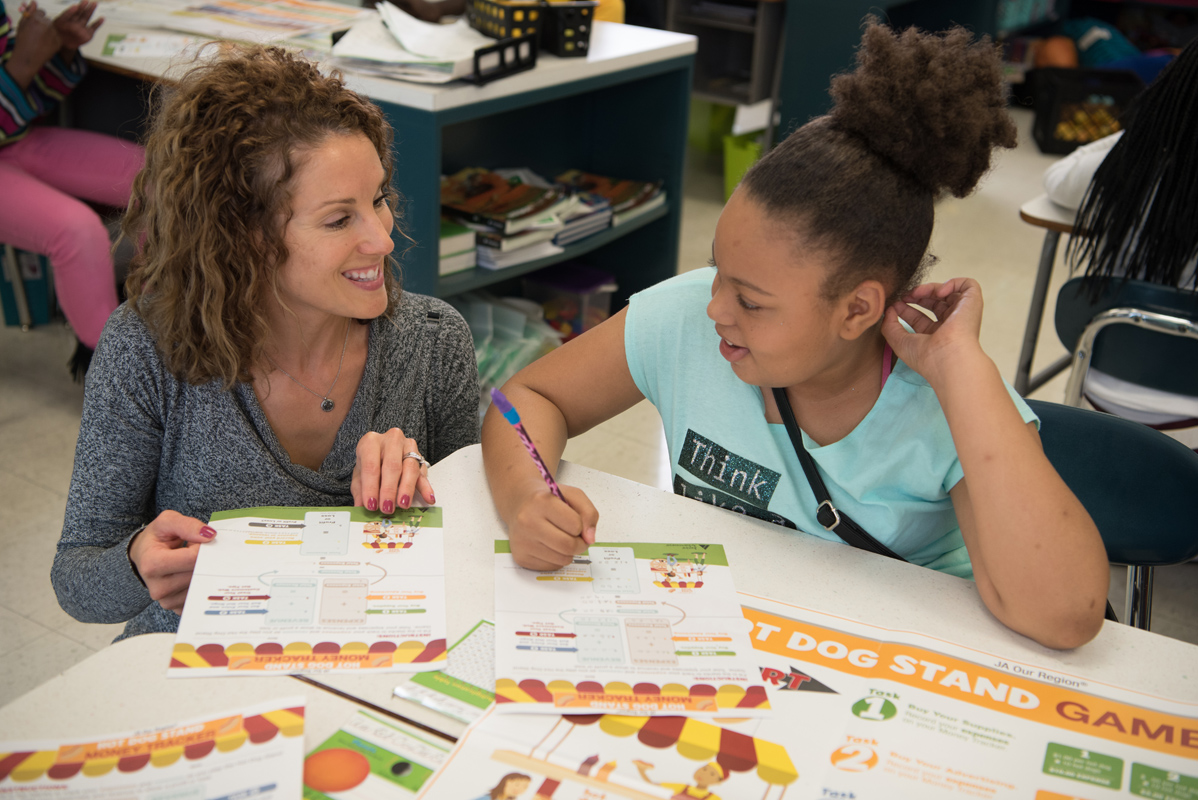
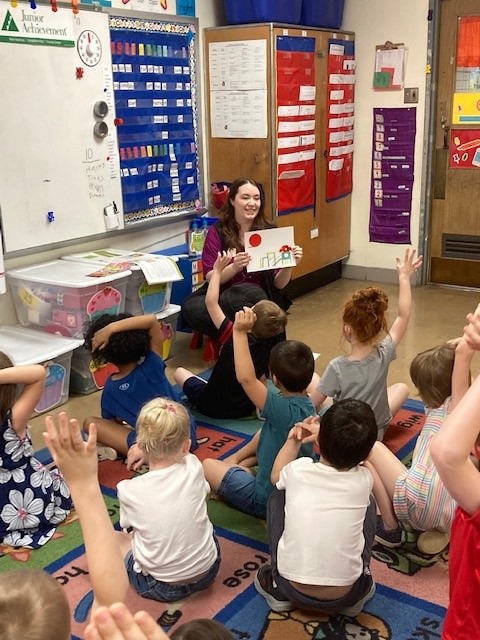
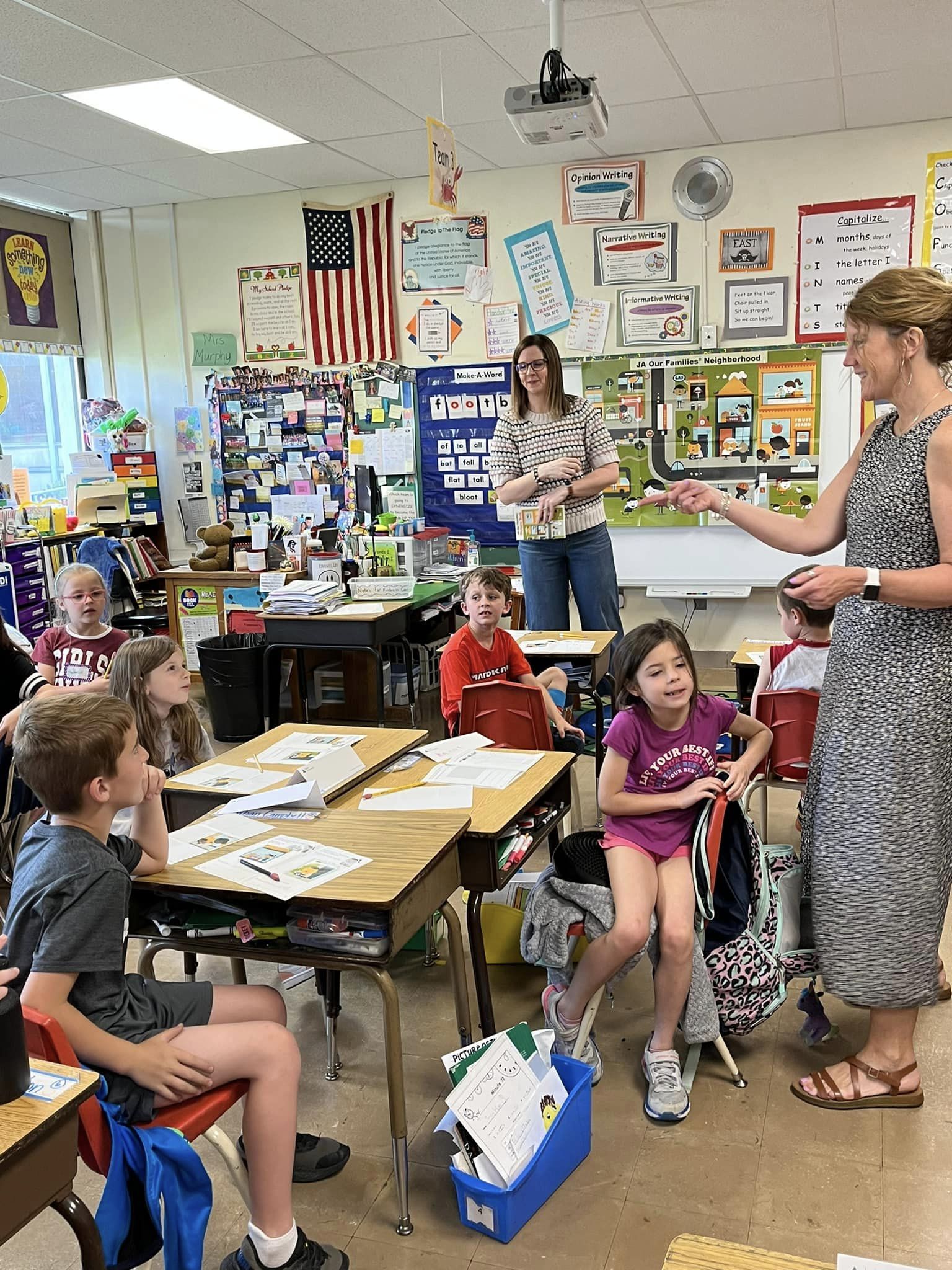
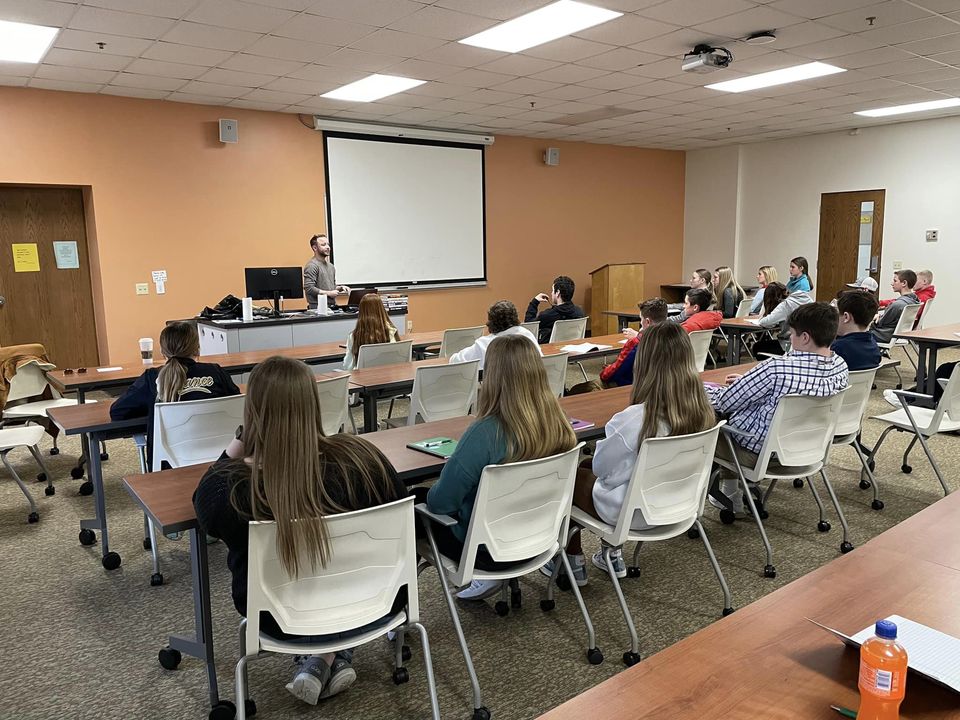
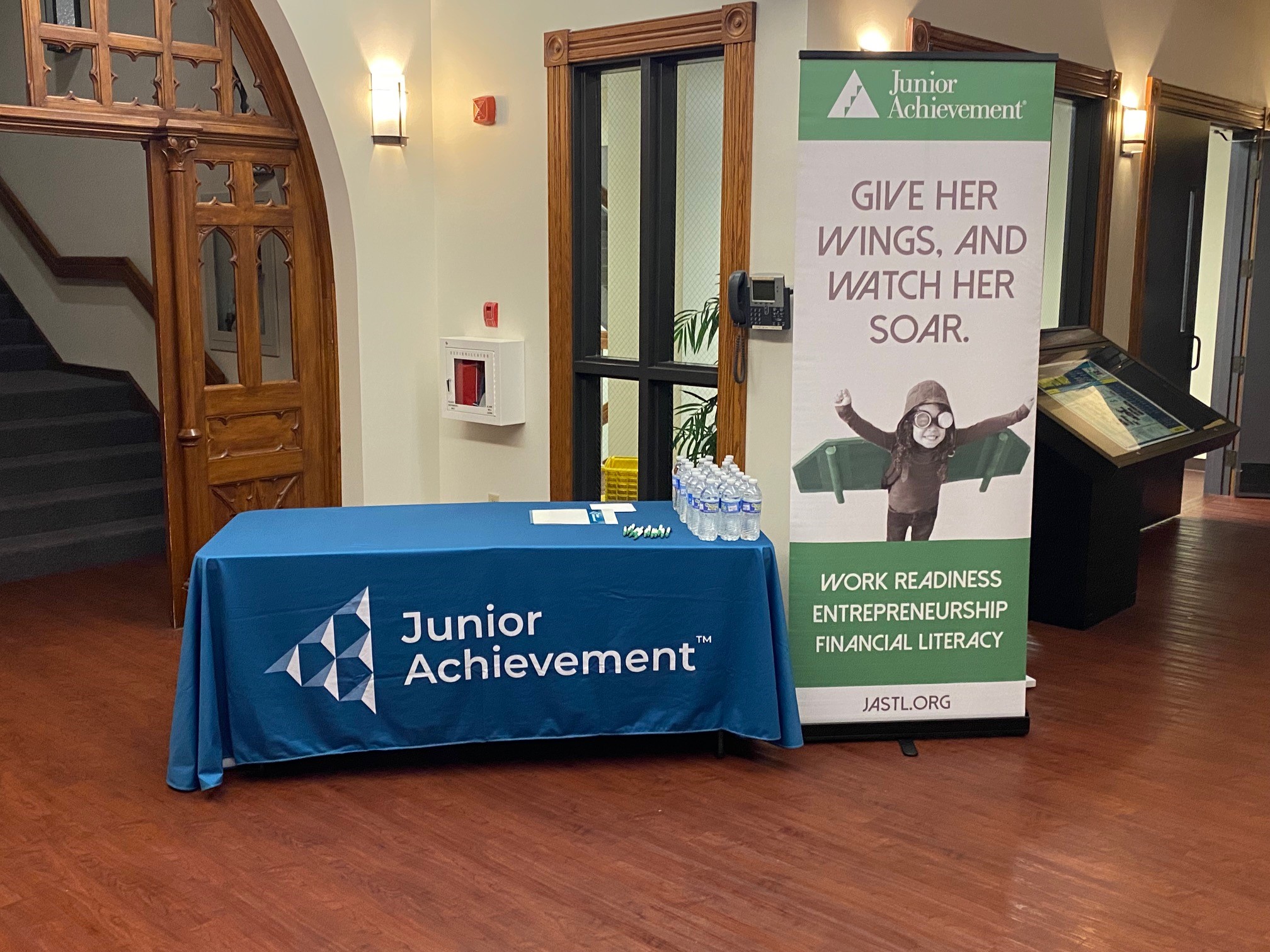
Taylor Rakers was a loan officer for Liberty Bank in Barry, IL, when he was asked to volunteer for an organization called Junior Achievement at Western Elementary School. He never stopped volunteering in the classroom and loved it so much that within the next 5 years, when the District Manager position became available, he applied for the job. Taylor had sat on the board over the years and believed wholeheartedly in the mission, so he transitioned from banking to Junior Achievement (JA) and hasn’t looked back! As the District Manager of JA, Taylor oversees 5 counties in Illinois and all the way to Chillicothe, MO, as part of his District.
What is this mission, though? What makes it so fulfilling to be involved that he felt so compelled to join? If you have children in the local school system, they likely know what Junior Achievement or JA is. Each grade level, from kindergarten to high school, has a curriculum that involves pieces related to money and finance. The younger grades the learning focuses on determining a “want” versus a “need” to spend money on. As the grades progress, the focus moves to learning the importance of spending money in your community because if you don’t spend money in local shops and restaurants, then they won’t be able to stay open, etc. They also then discuss the importance of donating money at the elementary levels.
Once they move to the 5th and 6th grade years, they get more into personal finance with the Biztown curriculum. This folds all of those topics together into an interactive experience in Chesterfield, Missouri; the children go on a trip as a class in which they are business owners or employees and patrons of other businesses in the “town” environment, making and spending money. My daughter did this field trip as a 6th grader and enjoyed every minute of it! This was my first introduction to JA as a parent, much to Taylor’s chagrin, I know.
In 7th and 8th grade and throughout high school, the JA curriculum continues with personal finance and focuses on investing and what that looks like. It also discusses insurance and the different types of insurance. The goal of the program is to create more informed consumers. Too often, we meet young people who have gone through high school and some college, whether it be community college or 4-year university, who have no idea what the importance of a retirement account is or, when it needs to be started, or the difference between full coverage and liability insurance and JA is trying to change that.
Junior Achievement also focuses on Work Readiness by finding what each child wants to do rather than having a college-only focus. Taylor holds three career fairs each year at Quincy Junior High School, Hannibal Middle School, and an area-wide fair for 13 different schools at Quincy University. Over 1000 kids attend these career fairs each year and are able to talk with business professionals in their field of interest that may or may not require a college degree. Taylor said, “Because college is just too expensive now to just go and try to figure out what you want to do once you get there, we want to narrow their focus and let them know what is available here in their community, and if they choose to go to college they know just what they need to study when they get there.”
JA allows this financial curriculum to be taught in the classroom in part because it is run by volunteers and because JA does fundraising, which makes the program possible. To learn more about how you can get involved in Junior Achievement in your child’s classroom or school, please contact your child’s principal or teacher directly. According to Taylor, “You’re helping the next generation of kids that will be employed, but as a parent, it’s a great way to see your child in a different atmosphere as their teacher rather than, say, in a class party environment. You get to see how they are excelling and see them learn. It’s a totally different experience.” Volunteers are set up for success and get great help from the teacher and JA guide. Taylor believes in leaving things better than he found them. JA means that he gets to serve an entire generation of kids. He hopes that this next generation of kids can handle money and understand money and finances better than his generation. He lives a life of service, whether it’s JA or coaching or running a flag football league with his wife and four friends. It allows him to serve people and his community. He finds so much joy in giving back.
In April, I was invited to attend the Junior Achievement Trivia Night Fundraiser with some friends, and it was a wonderful time! Interspersed between all the 90s references and Jock Jams were JA factoids, and I learned that the organization was so much more than just the Biztown field trip my 6th grader had gone on a few years before. This fundraiser was crucial to the program because they don’t charge the schools for the curriculum used. The only charge is for Biztown materials; the field trip is free to the school and provided by JA. Taylor made a point to say, “JA curriculum is so important for all kids to learn, so it’s important that it’s not a line item in a budget that can get cut. We don’t want to enforce the ‘haves’ and the ‘have nots’ so kids don’t get left behind.”
Junior Achievement is here locally to help kids make better choices with money. Taylor said, “The average household has $10,000 in credit card debt, national debt, and personal debts are at an all-time high, so many things say that we aren’t good with money. As polarized as our nation is on so many things, education shouldn’t be one of those issues. That’s what I love about JA!” Taylor went on to say, “I can go into a classroom, and I just focus on three big things. ‘What do you want to be when you grow up? You can run a business if you want to do that. And the importance and basics of how to handle money.’”
There has been a local JA office in our area for 15 years, and yet Taylor said they still joke at the board meetings that, “We are the best kept secret in children’s education, and we don’t want to be!” Our local Junior Achievement Chapter consists of 11 board members representing all job types from Missouri and Illinois, primarily from the Quincy, Palmyra, and Hannibal areas, serving the children in the counties of Adams, Brown, Schuyler, Hancock, and Pike.
I hope I’ve inspired you to ask your children about Junior Achievement in their classroom and your children’s teachers about helping out in the classroom and if you can, please donate to the fundraisers. This program is helping to make our communities so bright and continue to keep it shining for years to come through our younger generation!
Take Care! Nikki
